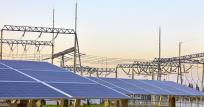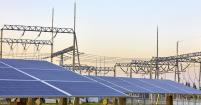

G20 Energy Ministers Recognise Progress on Renewables, Set Stage for More Action
Newsletter
Beijing, China, 30 June 2016 – Energy Ministers and other senior officials recognised recent progress to scale up renewable energy and examined opportunities for even greater action today on the sidelines of the G20 Energy Ministers meeting in Beijing. Before the start of the official meeting, participants joined the International Renewable Energy Agency (IRENA) to take stock of work completed under the G20 Toolkit of Voluntary Options for Renewable Energy Deployment, adopted last year at the first-ever G20 Energy Ministers meeting in Istanbul.
“The dramatic and ongoing shift in the global energy sector accelerated in 2015. Renewable energy costs have declined dramatically and will continue to do so, investment reached record levels, and global capacity additions set new record highs,” said IRENA Director-General Adnan Z. Amin. “Much of this can be attributed to the G20’s strong commitment to renewables.”
In 2015, Energy Ministers endorsed an 11-point Communiqué, including the adoption of a renewable energy toolkit, which provides options for G20 countries to increase their deployment of renewable energy. Led by IRENA under the guidance of the G20 Energy Sustainability Working Group, the toolkit focuses on five areas. During today’s meeting, IRENA Deputy Director-General Sakari Oksanen, highlighted progress achieved to date in each area:
- Driving down technology costs: Prices for solar PV modules and wind turbines have fallen roughly 80 per cent and 30 to 40 per cent respectively since 2009. New analysis from IRENA finds these cost reductions will continue well into the future. The Power to Change: Solar and Wind Cost Reduction Potential to 2025, released in June, estimates that by 2025, average electricity costs could decrease a further 59 per cent for solar PV, 35 per cent for offshore wind, and 26 per cent for onshore wind compared to 2015. Electricity prices for concentrated solar power could also decrease as much as 43 per cent. The report highlights the significant cost differences that exist today, signaling a strong potential for future cost reductions in G20 countries.
- Exchanging good practices on enabling policy frameworks and power system integration: As of 2016, 173 countries have renewable energy targets, up from 43 countries in 2005. To facilitate the sharing of best practice, IRENA and the International Energy Agency (IEA) continually update the joint IRENA/IEA Policy and Measures Database, which contains more than 700 policies for G20 countries.
To support renewable energy integration into the power system, IRENA held its IRENA Innovation Week in May, engaging with more than 240 experts on the power sector transformation and sharing best practice from around the world on technology business models, market design and policy framework innovation. A summary report will be released later this year. - Mobilising finance through risk mitigation: A record USD 286 billion was invested in renewables in 2015, 3 per cent higher than the previous record in 2011. But to increase deployment of renewable energy to the levels needed to meet global climate and development goals, this figure must double by 2020 and more than triple by 2030. Today, IRENA officially released a new report outlining a global action agenda to scale up investment in renewable energy. Unlocking Renewable Energy Investment: The role of risk mitigation and structured finance, finds that achieving this level of investment is entirely possible if policymakers employ a portfolio of approaches that target different investment constraints.
- Technology potentials and roadmaps: Renewable power generation capacity grew 8.3 per cent in 2015 – the highest rate ever – but a much higher growth rate is both technically and economically feasible. In March, IRENA released REmap: Roadmap for a Renewable Energy Future, which assessed the feasibility, costs and benefits of doubling the global share of renewables by 2030. It found that doubling the share of renewables in the global energy mix by 2030 can save up to USD 4.2 trillion annually by 2030 – 15 times more than the costs – thanks to avoided expenditures on air pollution and climate change. Today, IRENA released Country Options for Sustainable Growth Based on REmap, a background paper summarising REmap results for all G20 countries and identifying action areas for G20 policy makers to scale up renewable energy in their countries.
- Deployment of modern bioenergy: In April, IRENA released the paper Boosting Biofuels: sustainable Paths to Greater Energy Security, which provides an overview of the challenges of scaling up biofuels and different means for G20 countries to overcome those challenges.
Meeting participants welcomed the work undertaken in these areas and examined further action opportunities to take the toolkit forward. IRENA will continue to coordinate the implementation of the toolkit to accelerate the deployment of renewable energy, under the guidance of the G20 and with the support of other international organisations including the International Energy Agency (IEA) and the World Bank.
Building on the success already achieved through the toolkit, Energy Ministers are now considering a G20 Voluntary Action Plan on Renewable Energy to drive the continued expansion of renewable energy in G20 countries.




